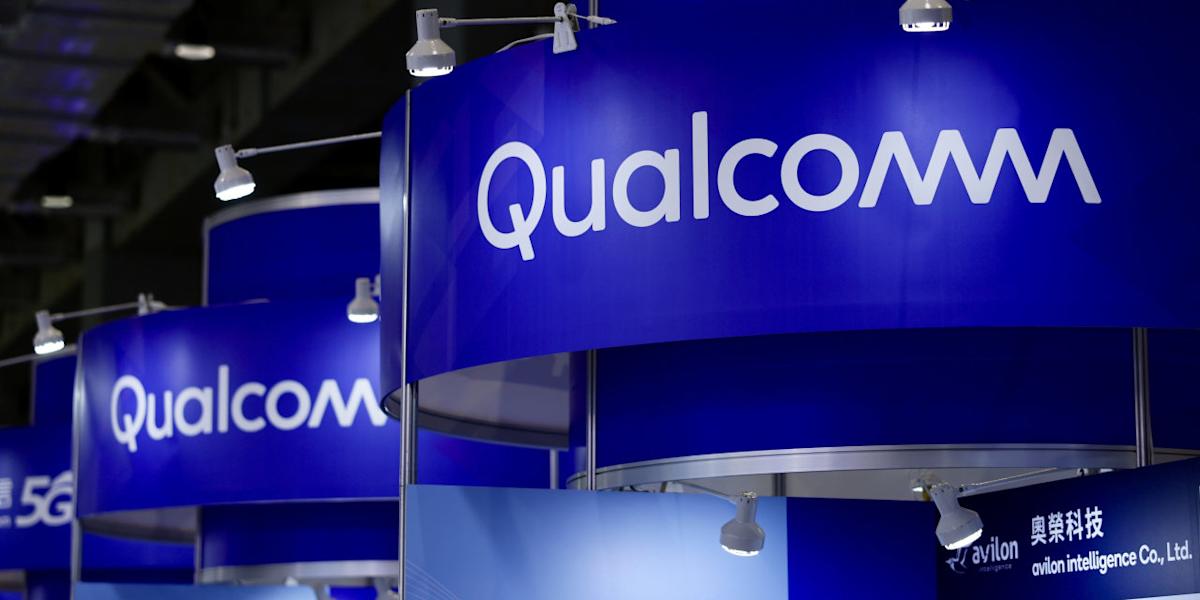Qualcomm is among the U.S. chip companies to have come under scrutiny in Beijing. – ritchie b tongo/Shutterstock
BEIJING—With rare-earths export restrictions and a string of actions targeting the U.S. chip industry, Beijing is mounting a full-scale offensive on Washington ahead of an expected meeting between President Trump and Chinese leader Xi Jinping.
The latest to face Beijing’s ire: Qualcomm, one of the U.S.’s most important semiconductor companies.
China’s top market regulator said Friday that it had launched an investigation into Qualcomm for suspected violation of the country’s antimonopoly law. The probe is tied to Qualcomm’s acquisition of Autotalks, an Israeli startup, the regulator said.
A Qualcomm spokeswoman said the company is fully cooperating with the Chinese regulator.
In two days, Beijing has unleashed a barrage of actions that threaten to derail a fragile status quo with Washington over trade and other issues, with a particular focus on semiconductors.
On Thursday, China announced new restrictions on rare-earth materials, specifically noting that licenses related to certain types of chips will be granted on a case-by-case basis. Also Thursday, Beijing added roughly a dozen organizations to its “unreliable entity list,” including TechInsights, a Canada-based semiconductor technology research firm that had released reports on chip-development efforts by China’s Huawei Technologies.
China went beyond semiconductors. On Thursday, Beijing also said it would require licenses for exports of certain lithium batteries and some equipment and materials used to make them. Then on Friday, Beijing said it plans to impose a special port fee on U.S. vessels docking at Chinese ports, retaliating against the Trump administration’s move to levy fees on Chinese ships.
Ships at the port of Qingdao, eastern China. – Cfoto/Zuma Press
Beijing has used government investigations into American companies to place pressure on the U.S., which over the years has steadily imposed an ever-growing thicket of export restrictions and tariffs on Chinese goods.
American chip companies have come under particular scrutiny in Beijing. Last month, China’s antitrust regulator said a preliminary investigation found that Nvidia violated the country’s antimonopoly law in connection with an acquisition completed in 2020.
Chips are at the core of the technology rivalry between the U.S. and China. Their central role in artificial intelligence, military equipment and other areas with national-security and economic significance has made them the locus of tensions between the world’s two superpowers.
Washington and Beijing, who have been locked in contentious talks for months over tariffs and technology, have been preparing for a meeting between their two leaders. Beijing is looking for the U.S. to remove tariffs, as well as various technology restrictions that have constrained Chinese companies and the broader economy.
Qualcomm relies heavily on China for its business and, among American companies, is one of the most exposed to China. Nearly half its revenue came from China in fiscal 2024, the latest full year for which data is available. The San Diego-based chip company said in a recent filing that “a significant portion of our business is concentrated in China, and the risks of such concentration are exacerbated by U.S./China trade and national security tensions.”
The company, which makes mobile-phone and automotive chips, has a history of being a chess piece in U.S.-China tensions. In 2018, China didn’t approve Qualcomm’s planned purchase of Dutch chip maker NXP on time, leading Qualcomm to scrap the deal—one of the more consequential casualties of the deterioration in U.S.-China trade tensions. At the time, the U.S. and China were squaring off over trade and tariffs during Trump’s first term.
Qualcomm was in Chinese regulators’ crosshairs even before Trump first came to office. In 2015, Qualcomm agreed to pay $975 million to Beijing and revise its licensing practices in China to settle accusations that it violated local antitrust law. At the time, it was one of China’s most forceful moves against a foreign company.
Over the years, Qualcomm’s top executives have met with Beijing’s top officials in an effort to show goodwill and maintain positive ties. For two years straight, including this March, Qualcomm Chief Executive Cristiano Amon was among the handful of foreign business leaders selected to meet Xi in Beijing, on the sidelines of an annual gathering of foreign executives and Chinese policymakers.
China’s State Administration for Market Regulation, the antimonopoly regulator, said Qualcomm didn’t report how its acquisition of Autotalks would impact the concentration of operators in the market. After giving up on the deal in 2024, Qualcomm succeeded in acquiring the Israeli auto-chip designer in June this year, part of a larger effort to boost its presence in the burgeoning field of communications between cars and their surroundings.
Write to Yoko Kubota at yoko.kubota@wsj.com
